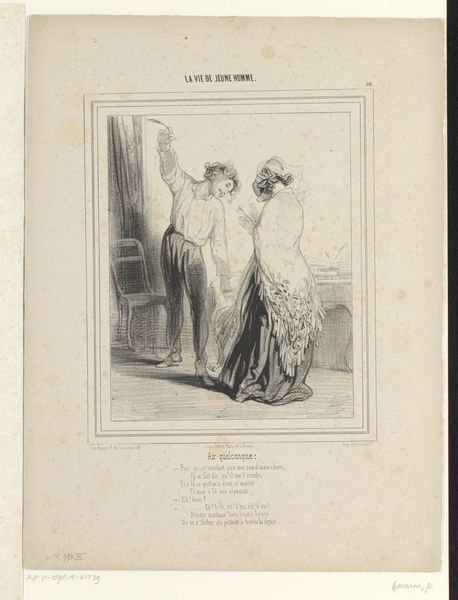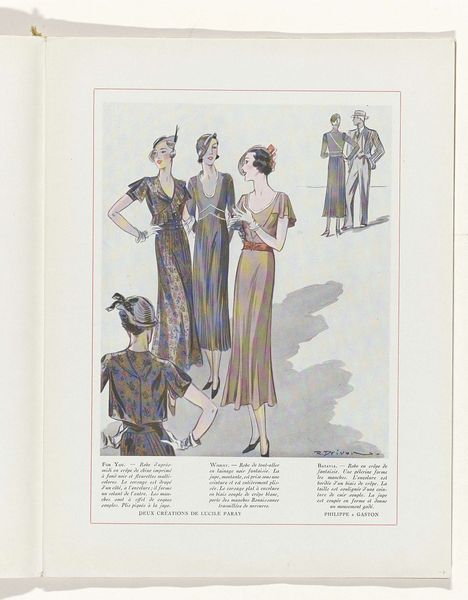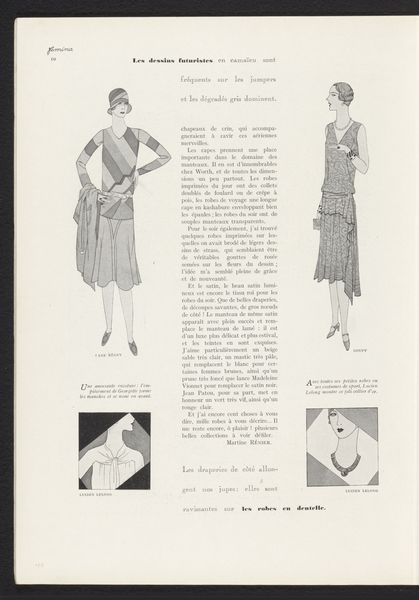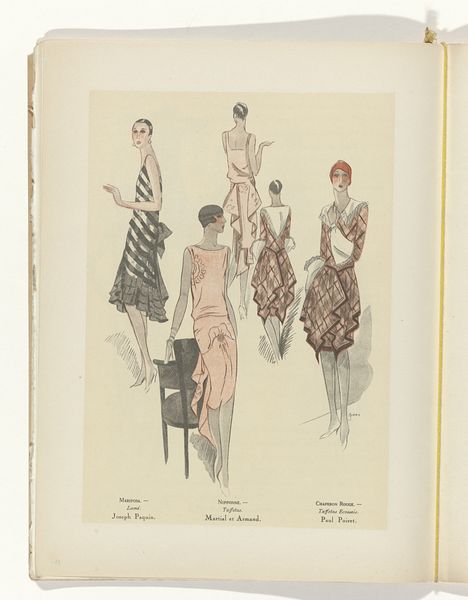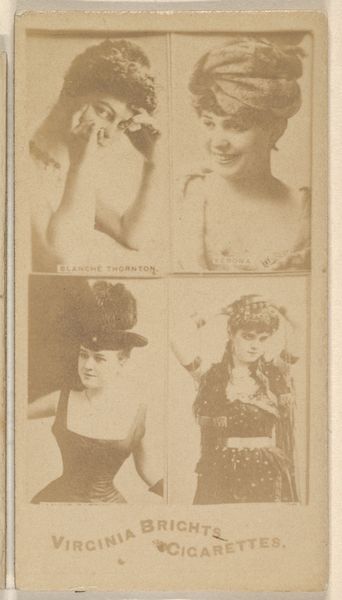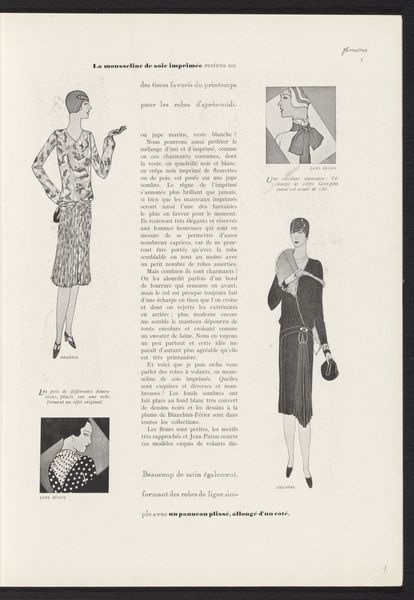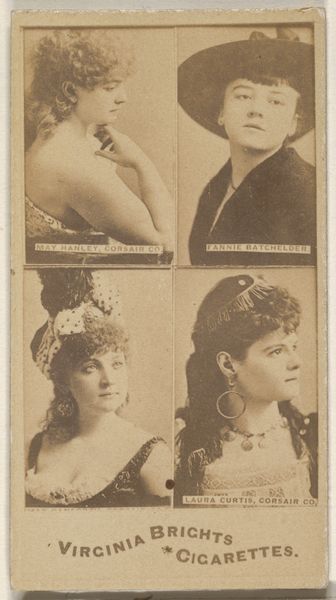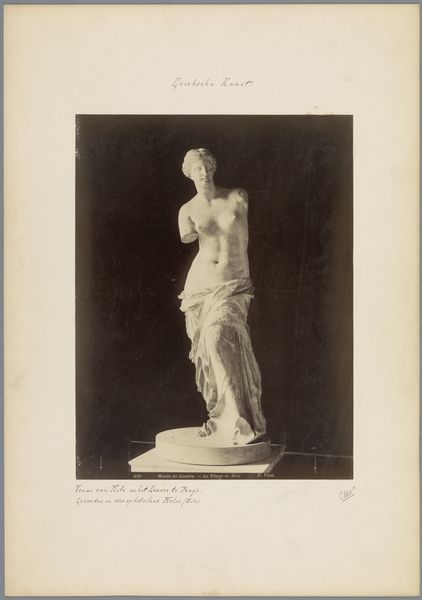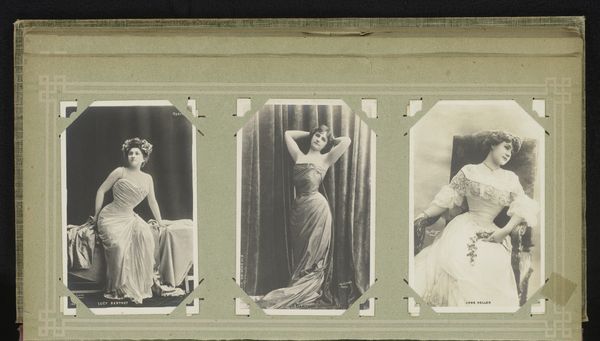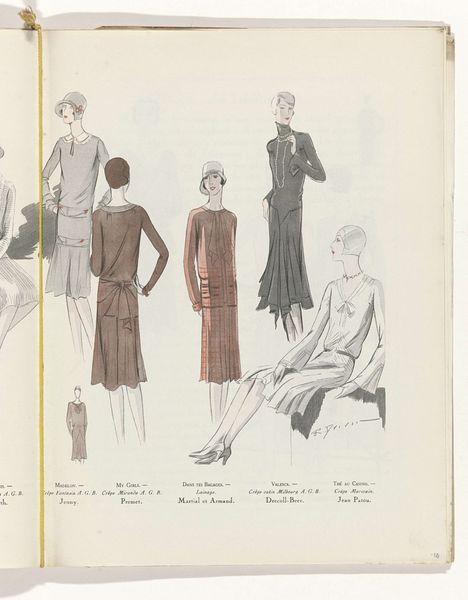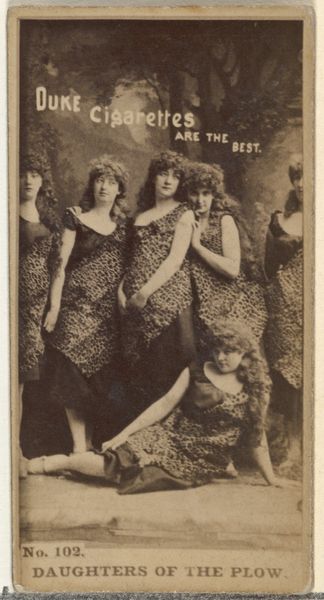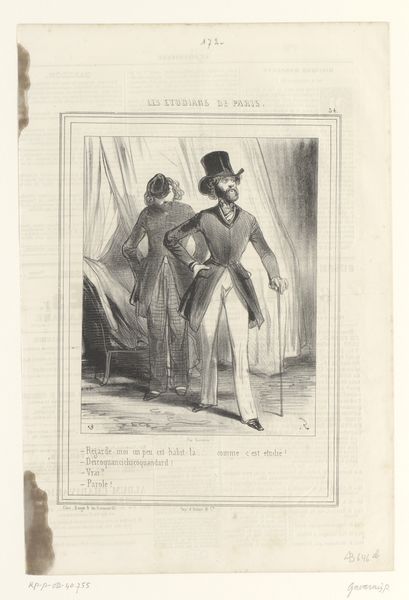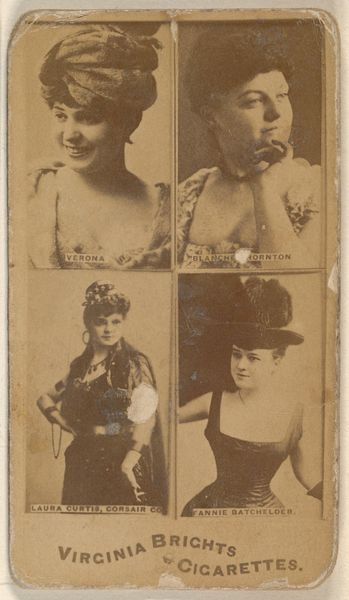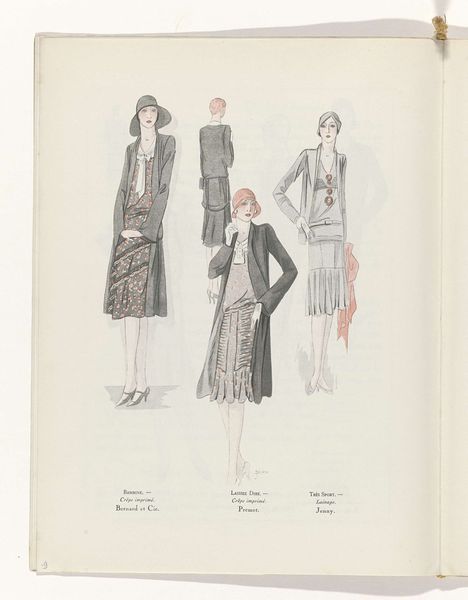
Femina, 1 Mai 1914, 14e Année, nr. 19: pagina met drie voorbeelden van corsetten 1914
0:00
0:00
print, poster
#
portrait
#
art-nouveau
# print
#
figuration
#
poster
#
realism
Dimensions: height 352 mm, width 284 mm
Copyright: Rijks Museum: Open Domain
Curator: This is a page from "Femina, 1 Mai 1914," a magazine published in France. It’s an advertisement for corsets, specifically for "Le Corset Ligne Ideale," or "The Ideal Line Corset," made available at "G Magasins du Printemps," and made in print. Editor: My first impression is how strikingly the print presents artifice as the key to beauty, constricting the body to mimic an idealized form. It is like a pale dance with industrial promise! Curator: Indeed. Note the language: this corset competition promises the ideal bust of tomorrow by talented artists in the Grand Palais. These are objects born from specific manufacturing and artistic processes. Look closely and one sees that the material advertised varies for each corset shown, from jersey to batiste. Editor: It's a fascinating snapshot of the social context. It promises access and elevates a particular class ideal. Curator: Consider the implications! A corset that delivers aesthetics and hygiene! A statement about modernity that also implies class! The ad itself suggests the elite associations through a faux-classic marble statue, draped to serve as the centerpiece! It reflects a visual culture, aspiring towards classicism to lend authority to this garment that constricts. Editor: And this claim of hygiene—interesting marketing that sells these constricting contraptions as an aesthetic aid in a society dealing with anxieties around bodies, health, and modernity. What labor went into these corsets that made the figure, that made the figure modern? It opens doors to all sorts of thoughts. Curator: Exactly. The advertisement becomes a symbol for all the contradictions inherent within art and its relationship to the commercial machine, raising issues about consumption and body image ideals that resonate with fashion imagery even now. Editor: Examining "Femina" gives us so much more than what immediately meets the eye. Curator: Yes, and viewing them through this combined socio-historical and material lens brings to the surface its true implications.
Comments
No comments
Be the first to comment and join the conversation on the ultimate creative platform.
